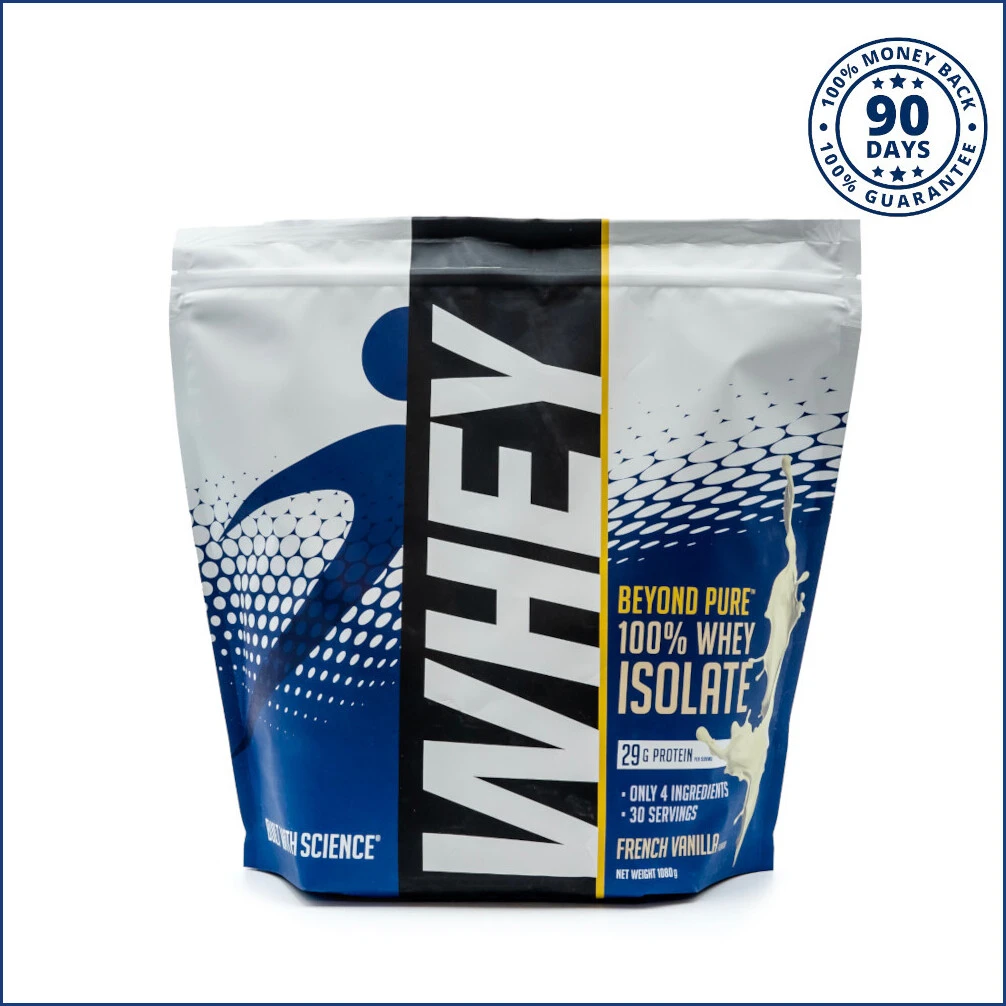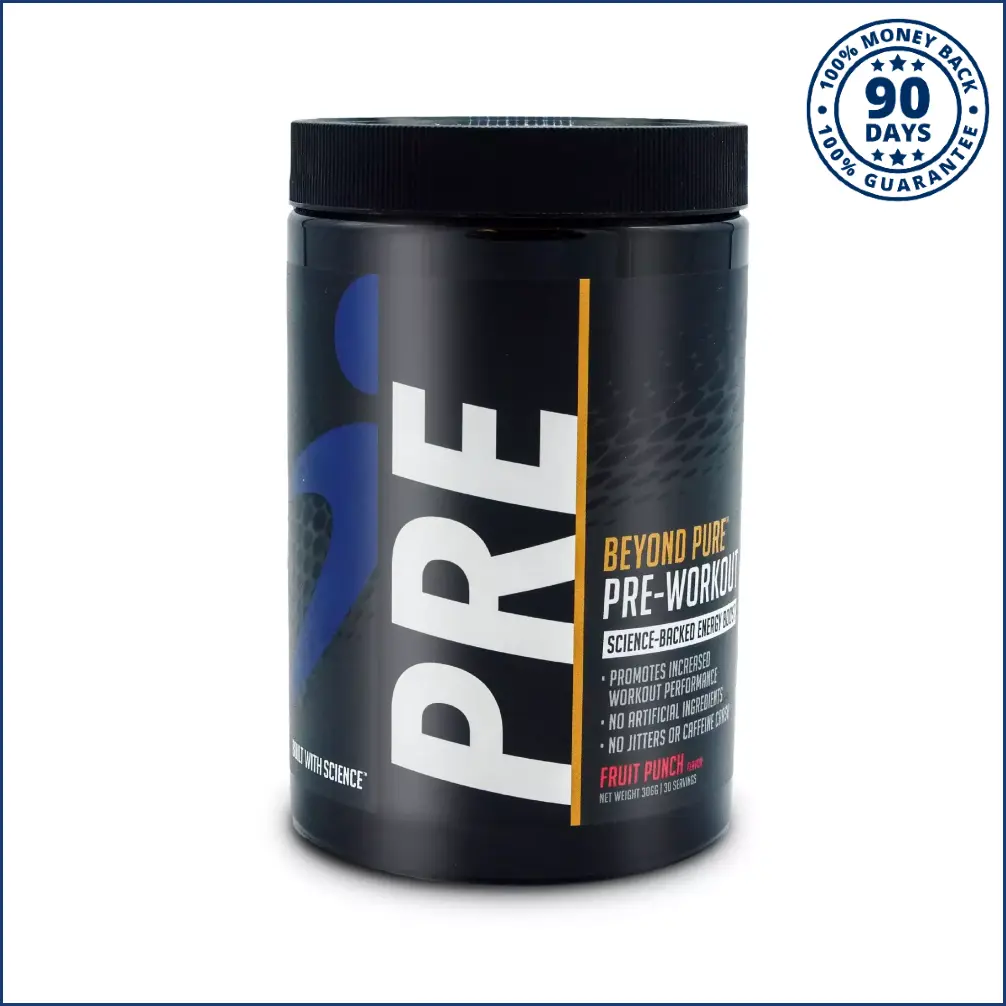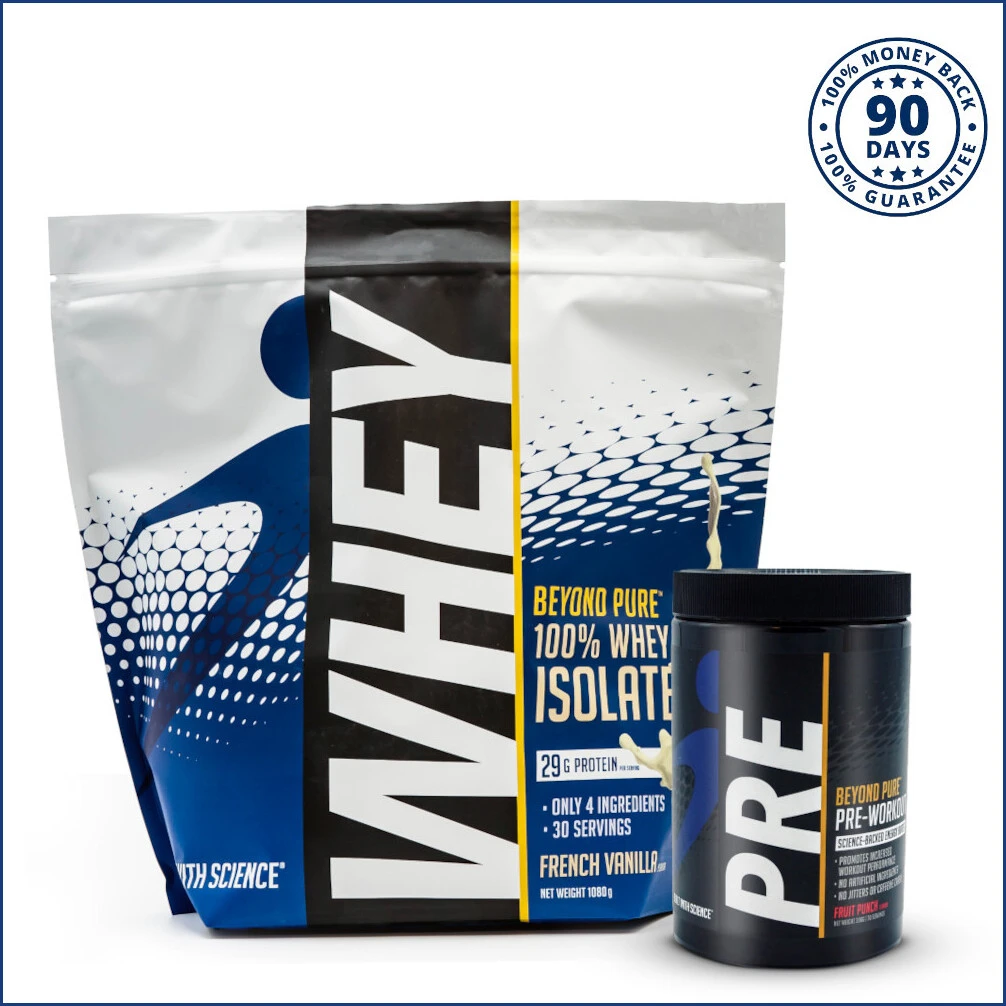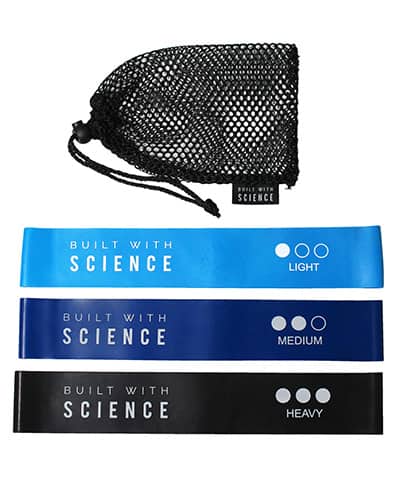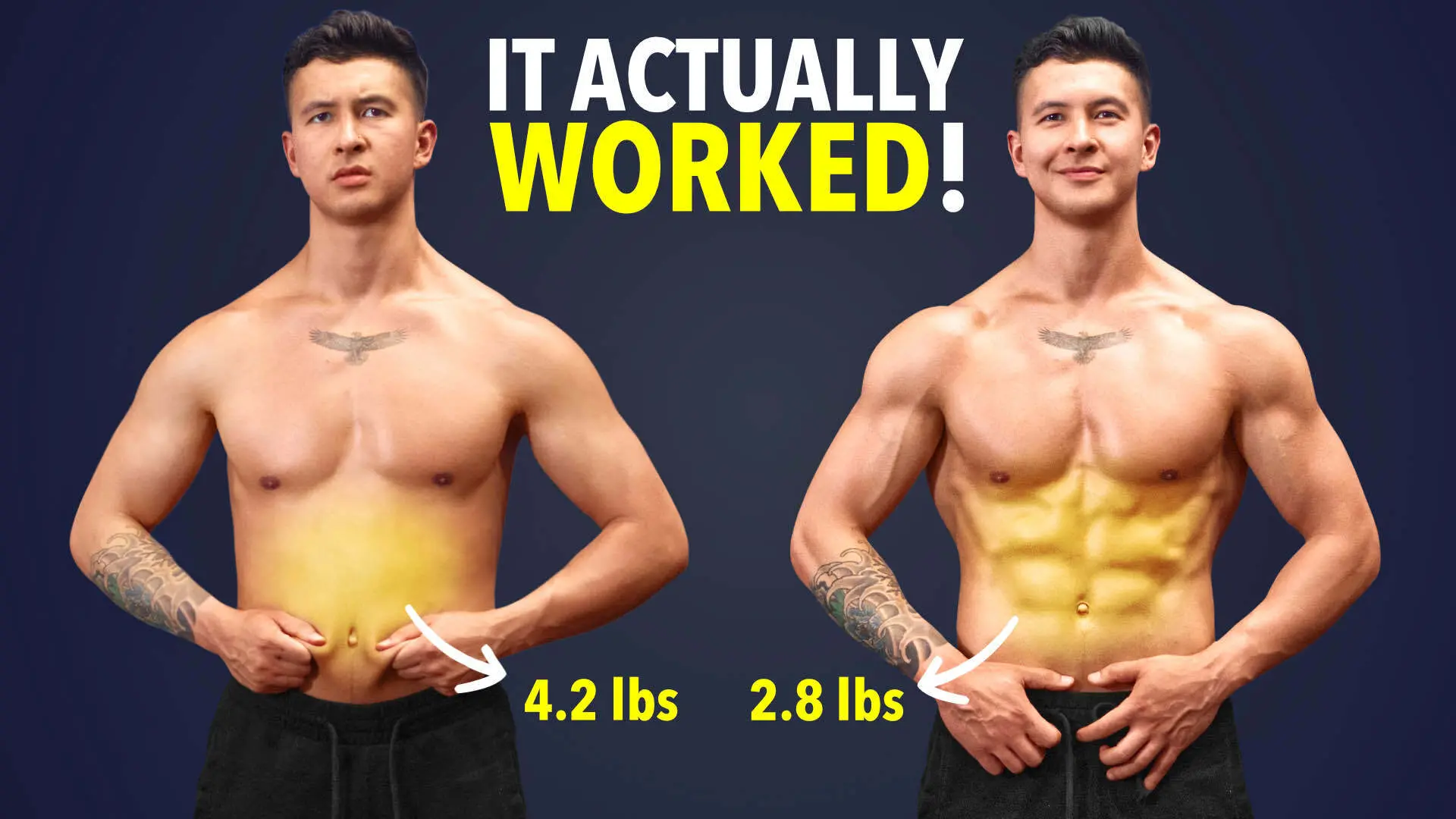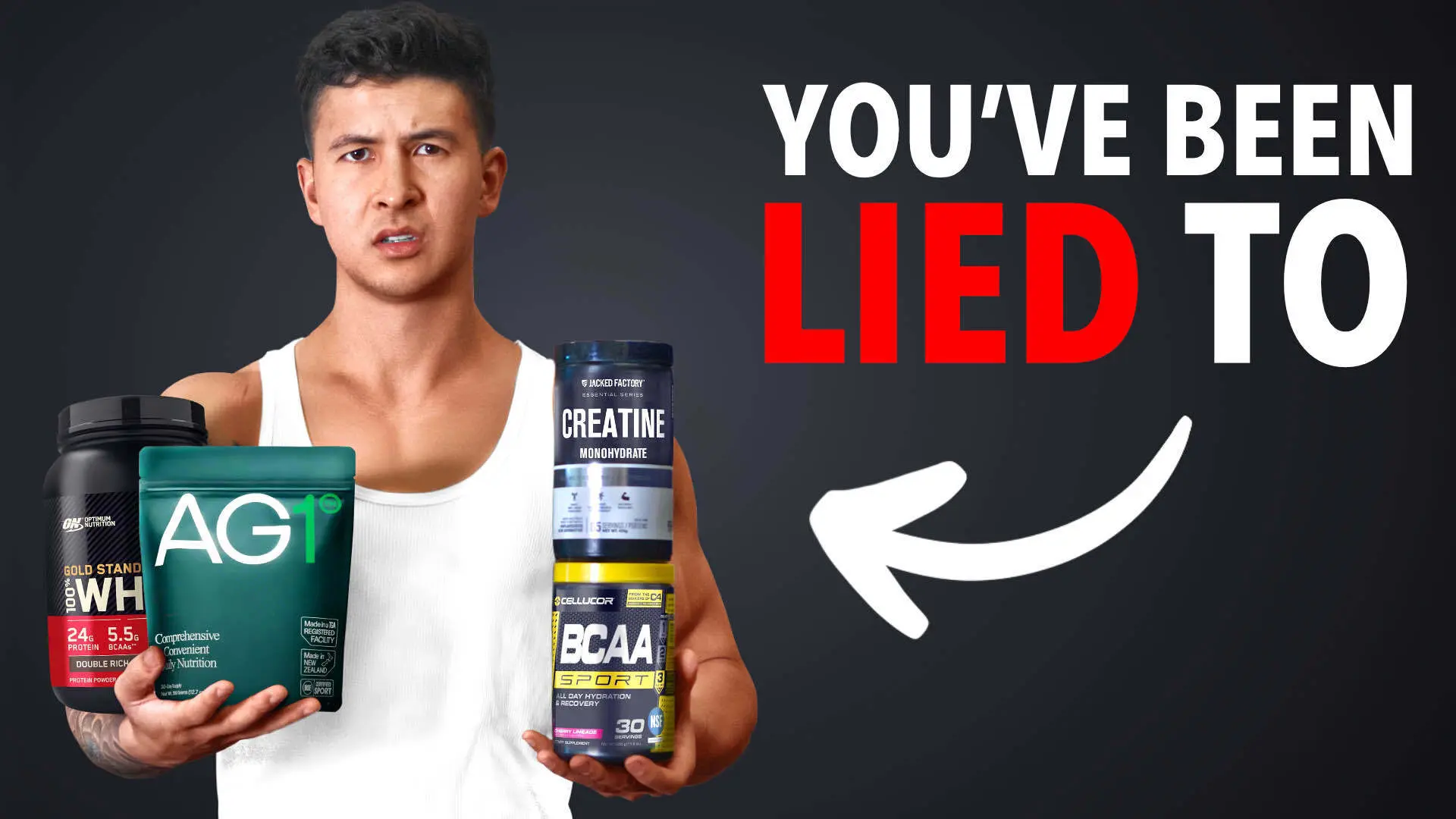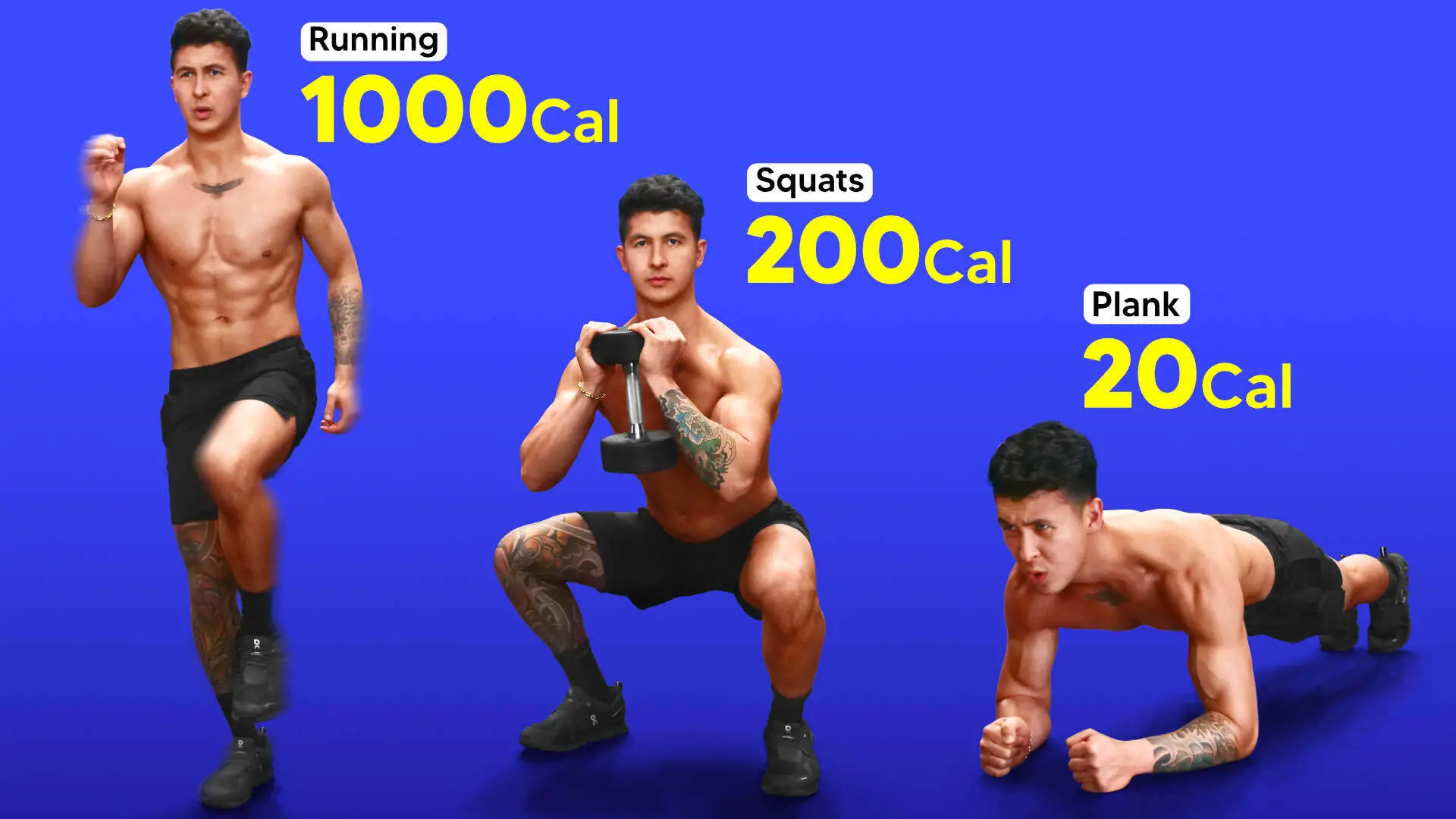
Hydrolyzed Collagen: The Best Supplement for Skin Care?
If you want to have beautiful, flawless skin for life...Then you should be using hydrolyzed collagen for skin care.
As you’ll learn, aging can really take a toll on your skin. Just look at the oldest people you know, and you’ll see what I mean.
With age, our skin shrivels up - growing dry and wrinkled - before sagging. Plus, if we’re not careful, the sun can damage our skin too; leaving us with spots and stains. Worse though, our skin gets covered in gaping pores over time. To say nothing of the loose skin or cellulite that many face, even in youth.
And what’s more, nobody is safe. No matter what we do, our skin loses collagen when we age. Which leaves us prone to all this skin damage.
But what if I told you that it didn’t have to be this way? And that really, for less than a dollar a day, you could look young for life. Kissing your unwanted wrinkles and spots goodbye.
Well today, with hydrolyzed collagen, you can.
So here we explain all the ways that collagen benefits your skin. And then we outline how you can use hydrolyzed collagen for skin care.
But, of course, when it comes to looking young, it's not all about the skin. Staying physically active - and looking in shape - is also a key factor. That's why I've designed every BWS program to be an all-in-one, science-based process that’ll get you to your dream physique FAST. And best of all? It's all rooted in science. For more information:
Click the button below to take my analysis quiz to discover the best program for you:
↓
But first, a brief primer on collagen:
WHAT IS COLLAGEN?
Collagen is the most common protein in the human body. And it's most often found in our skin, bones, or joints.
But it’s not only found in humans. Since for example, when you eat pig skin, you get some collagen as well.
Sadly though, there aren’t many collagen rich foods. And as such, most people have to supplement with collagen.
So most of the time, collagen refers to a protein supplement. That is, hydrolyzed collagen, or collagen hydrolysate. Which is sold in pill or powder form.
You see, when you take a collagen supplement, collagen synthesis goes up. Or in other words, when you eat collagen, your body makes more collagen. It’s just that basic.
And this explains why hydrolyzed collagen benefits your skin. As you’ll soon learn.
But first, let’s go over the issues with skin health as we age. And why collagen synthesis matters so much for our skin:
SKIN HEALTH AND COLLAGEN SYNTHESIS:
THE PROBLEMS WITH AGING
You see, your skin is ~75% collagen in dry weight. Hence, most of the protein in your skin is collagen.
But when you age, the proteins in your skin break down. And sadly, collagen synthesis goes down too. Or in other words, our bodies make less and less collagen. All the while losing more.

Thus, our skin breaks down, and it never recovers. Which can lead to many issues…
In brief, aging is bad for your skin. To help illustrate, your skin gets de-hydrated as you age. But further, your skin grows less elastic over time. And this can lead to more wrinkling or sagging.
Luckily though, collagen supplements can boost collagen synthesis. That is, our bodies start to make more collagen again. And the broken-down proteins in our skin get replaced.
As such, hydrolyzed collagen can help restore our skin health - healing any age-related damage.
So now let’s see all the ways that hydrolyzed collagen benefits your skin:
SUMMARY:
- Our skin is over 75% collagen in dry weight. Thus, most of the protein in your skin, is collagen.
- But sadly, we lose collagen as we age. And collagen synthesis goes down as well, so we can't replace it.
- Hence, without support from collagen, our skin wears down over time. Which then leaves us prone to wrinkles, sagging, and other forms of skin damage.
- Luckily though, collagen powder benefits your skin by restoring its collagen. As you’ll soon learn.
HYDROLYZED COLLAGEN AND SKIN CARE: WHAT DOES COLLAGEN DO FOR YOUR SKIN?
More so than anything else, collagen supplements are known to restore our skin. And believe it or not, that's for very good reason.
In fact, there are many promising studies on collagen and skin. Mostly focused on using collagen for skin care. Really, a bunch of studies... [1,2,3,4,5,6,7,8,9,10,11,12,13,14,15,16,17,18,19,20,21,22,23,24].
But what’s more: all but one study shows that collagen supplements can help with skin care. That is, hydrolyzed collagen benefits skin health almost every single time.
So, most studies would agree...Collagen supplements can provide your skin with many benefits.
And as such, we should get into a few cool studies here...
HYDROLYZED COLLAGEN AND SKIN: RESEARCH FINDINGS
In one study, 53 women were split into 2 groups. Where in one group, they took 1 gram of collagen hydrolysate. And in the other, they took 100 mg of vitamin C per day.
After 12 weeks, collagen users saw way better skin hydration. But further, their crow’s feet and wrinkles faded away too. And all the while, women using vitamin C saw few skin benefits.
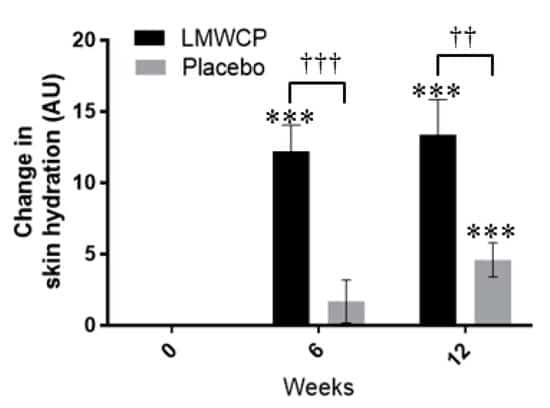
Better yet though, collagen seemed to help boost skin elasticity as well. Now, the more elastic your skin, the less it sags. Thus, collagen helped make skin sag less.
So, that seems like a win for collagen hydrolysate. When compared to vitamin C, it can help with skin hydration, crow’s feet, and wrinkles. But to top it all off, collagen could make your skin sag less too.
Moving on, another study looked at collagen and skin health.
In this case, the test group took 4 grams of hydrolyzed collagen per day. While the control group just took a placebo.
First off, skin elasticity went up by 24% with collagen. But at the same time, placebo didn’t seem to help with skin at all. What’s more though, collagen users saw much better skin health all around. That is, better skin hydration, elasticity, smoothness, radiance, and softness too.
And so, collagen supplements don’t just help with skin health. But in fact, you'll notice that your skin looks better.
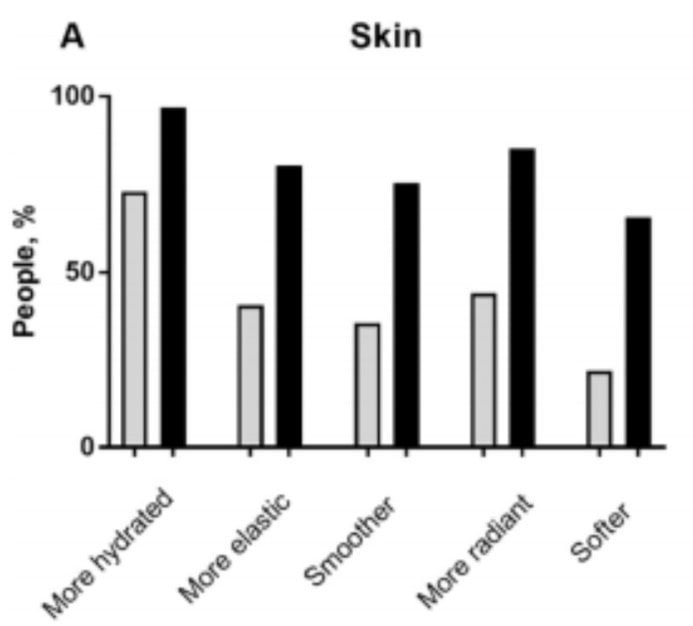
Now, I've pointed out these studies since they match up well with the others. As hydrolyzed collagen helped skin in many ways, all within a few months. And with just a small dose.
So next, we’ll look at all the other studies:
RESEARCH SUMMARY
When we look at all of the research, we see a few main findings. And they all show the benefits of collagen for skin care.
To be clear, collagen hydrolysate has been shown to:
- moisturize dry skin [1,2,3,4,5,6,7,8,9,10,11,12]
- remove/fill in wrinkles [1,2,3,4,5.6,7,8,9,10]
- tighten loose skin [1,2,3,4,5,6,7,8,9]
- get rid of photo-aging and skin spots [1,2,3,4,5,6]
- help heal pressure ulcers/wounds [1,2,3]
- make skin smoother [1,2; maybe not]
- eliminate pores [1,2]
- reduce cellulite/skin waviness [1]
- clear up under-eye dark circles [1]
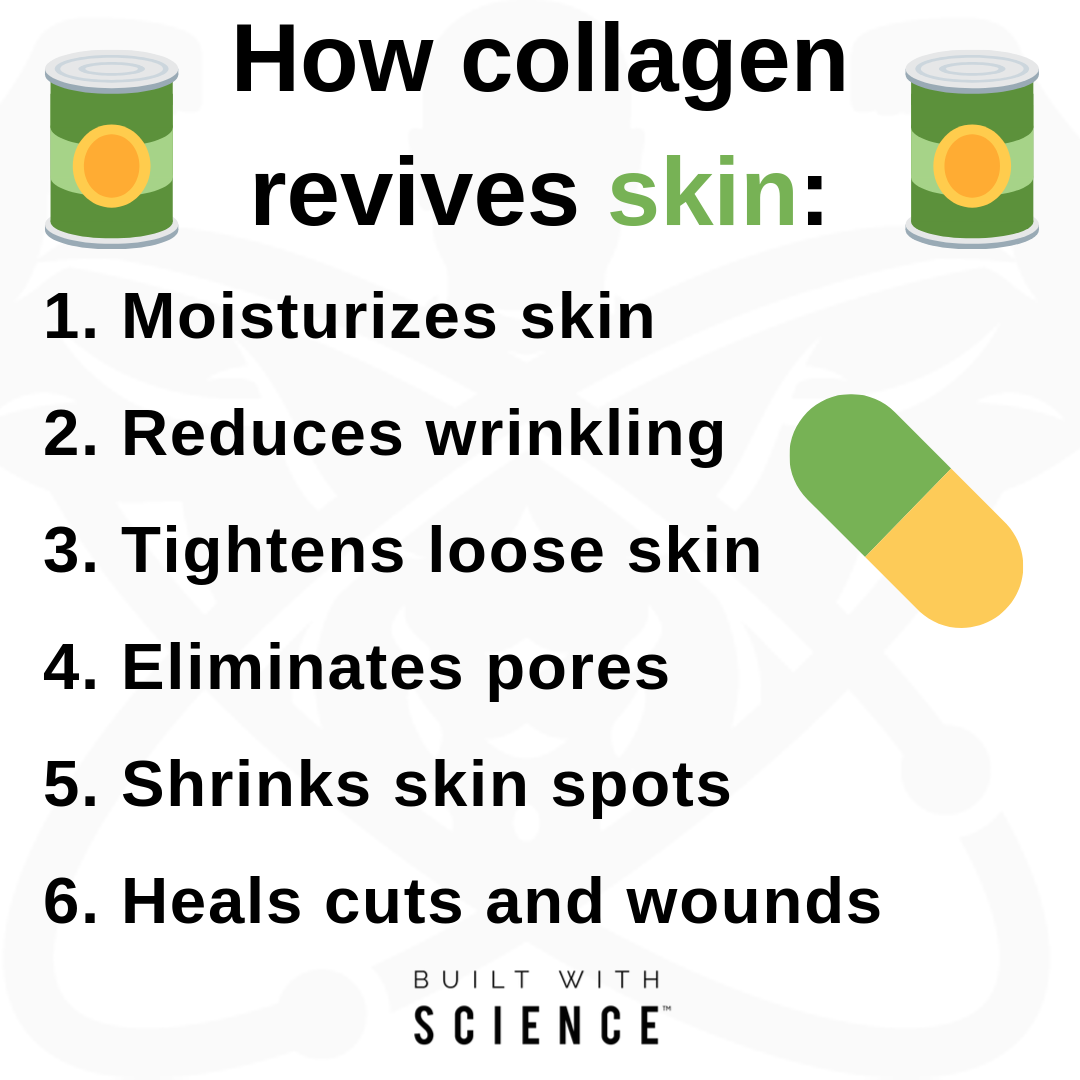
So collagen supplements help your skin in many ways. And now, we’ll get into the details for all the main findings:
COLLAGEN AND SKIN HYDRATION
Most of all, studies show that collagen supplements can help re-hydrate skin. So, if you have dry, cracked, or scaling skin, then collagen may help you.
And in general, the more collagen you take, the faster your skin re-hydrates. For example, 10 grams of collagen per day moisturizes skin quicker than 2.5 or 5 grams of collagen per day. Since higher doses can boost collagen synthesis by more.
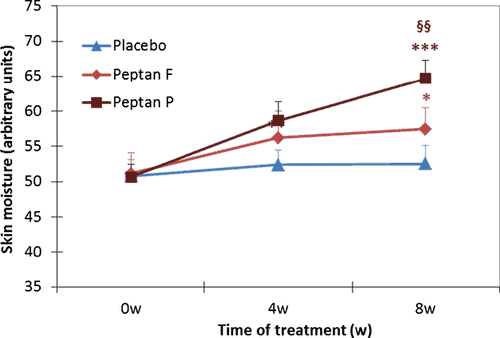
But with that said, even just 2.5 grams per day can help with skin hydration in under 4 weeks. At least for the face, neck, and forearms, that is.
And lastly, collagen supplements can help anyone with skin hydration. But for some reason, it seems to work faster in the elderly.
So the more collagen you take, the better (up to at least 10 grams/day). And, the older you are, the faster collagen seems to work for you.
SUMMARY:
- Hydrolyzed collagen can re-hydrate skin, bringing back any lost moisture.
- At least up to 10 grams per day, the more collagen you take, the better.
- And even just small collagen doses of 2.5 grams/day can re-hydrate skin. Within 4 weeks, at that.
- Lastly, collagen supplements seem to moisturize skin faster for the elderly.
COLLAGEN AND WRINKLES
Luckily, collagen supplements can help get rid of wrinkles as well; masking all those dreaded lines in your skin.
Plus, the deepest wrinkles fade the most quickly with collagen. And so, the deeper the wrinkle, the quicker it gets filled in.
But better yet, even if you stop using collagen, your wrinkles won’t return for weeks. Literally. You could stop taking collagen for a month, and still reap the benefits… Pretty cool, right?
Indeed, collagen fills in your deepest wrinkles faster. But better yet, it can keep them filled in for up to a month after you stop using collagen.
Of note, collagen might actually give you more wrinkles in the short-term. But this is only true for some people. And on the bright side, collagen always reduces wrinkling within 3 months.
Plus, you shouldn’t see more wrinkles at any time point. Since collagen has shown to clear up wrinkles in as few as 3 weeks.
So if you see more wrinkles after first using collagen, fear not. Just hang in there, as these wrinkles will soon disappear... And your pre-existing wrinkles will too.
But with that said, you should never really see more wrinkles with hydrolyzed collagen.
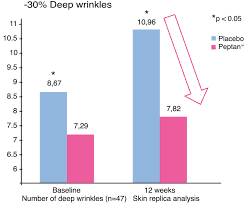
SUMMARY:
- Collagen supplements have shown to help fill in wrinkles.
- But further, it fills in your deepest wrinkles the fastest.
- And even a month after you stop using collagen, you’ll have fewer wrinkles.
- Now, in the short-term, collagen might give you more wrinkles. But this is rare. And it’s only a temporary thing. Hence, these wrinkles will later pass on.
- Lastly, collagen can clear up wrinkles within just 3 weeks. And so after 3 months, you should be able to see all the benefits of collagen for skin care.
COLLAGEN AND SAGGING SKIN
A most hated feature of aging, loose skin is quite common. But on the bright side, hydrolyzed collagen can help tighten up your loose skin.
In fact, even small collagen doses can make your skin sag less. And better yet, that's within just 4 weeks.
Which makes sense, as collagen supplements make your skin more elastic. That is, they can make your skin more resistant to stretch. Thus, they help tighten up any loose skin.
Further though, if you stop taking collagen for a month, your skin stays more elastic. So even weeks after you stop using collagen, your skin might sag less.
Now, for what it's worth, this study showed that collagen helped older people faster. Yet, another study showed better results with younger subjects. And as such, we don’t know if older or younger people respond better to collagen. We just need more studies before we can say for sure...
So all told, collagen can quickly boost your skin’s elasticity. Which means that it can help your skin sag less in just a few weeks. But further, you could stop taking collagen for weeks, and your skin would still sag less.
SUMMARY:
- Collagen can help tighten up any of your loose skin.
- And even in small doses, collagen can benefit skin health. Within a month or so, no less.
- But further, if you stop taking collagen, your skin may sag less for weeks to come.
- Lastly, collagen can help both the young and the old. Although, we don’t know if collagen helps older or younger folks by more.
COLLAGEN, SUN DAMAGE, AND SKIN SPOTS
As you may know, ultraviolet (UV) radiation can damage your skin. And that causes our skin to age sooner than normal. But luckily for us, collagen can help fight some of this sun damage.
In fact, collagen seems to mask signs of photo-aging, as well as related skin spots. Since for example, collagen can shrink UV spots in under 8 weeks of use.
So, if you take collagen for ~1 month, your sun spots should start to shrink.
Plus, collagen can help make our sun-exposed skin look better. Leaving us with fewer, less-pronounced fine lines after 17 weeks of use.
Thus, collagen can help cover up sun-related skin aging. But sadly, if you stop using collagen for a month or so, fine lines may come back.
Moving on though, this study showed that collagen can help reverse signs of sun damage too. As after 12 weeks, these collagen users had less wrinkling, crow’s feet, and skin dryness.
And what’s more, hydrolyzed collagen also seems to help with skin pigmentation and sunburns. Hence, it can help make sunburn go away faster. Yet, it still leaves your skin with a nice color.
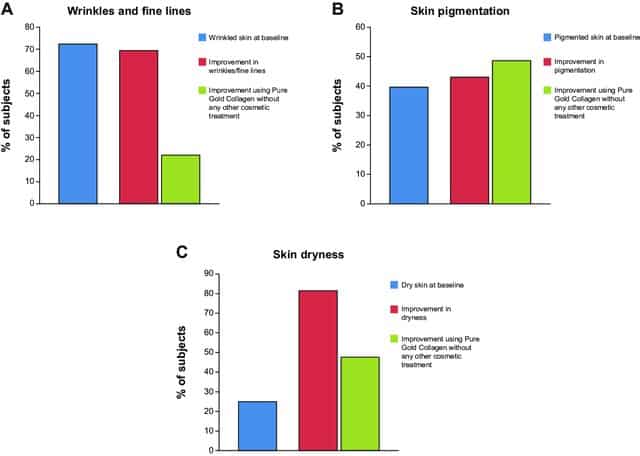
So, if the sun has damaged your skin, then collagen can help. As it's been shown to fill in wrinkles, mask crow’s feet, and re-hydrate dry or scaled skin. Plus, it can help with skin coloring, shrink sun spots, and protect against sunburn as well.
SUMMARY:
- Collagen supplements have shown to help fight sun-related skin damage.
- For example, they've been shown to shrink sun spots, get rid of sunburn, and improve skin color.
- And further, they can help mask sun-related skin aging. Such as crow’s feet, wrinkles, or dry skin, for instance.
- But the thing is, hydrolyzed collagen may take weeks to work. And the benefits may not last long once you stop taking collagen.
COLLAGEN AND WOUND HEALING
When pressure against your skin cuts off blood-flow, then ulcers can form. And what do you know?
Collagen supplements can help with pressure ulcers (i.e. bed sores) too.
For example, collagen peptides have been shown to speed up ulcer healing by quite a bit. Both by cutting recovery time in half, and shrinking wound area.
So, if you have a pressure ulcer, collagen makes it fade away faster. And while we don't have that many studies, collagen seems to improve wound healing in general.
SUMMARY:
- Collagen supplements can help heal pressure ulcers. Which are ulcers that form due to pressure against your skin.
- In fact, collagen can shrink wound size, and cut recovery time in half too.
- But further, collagen seems to help your wounds heal faster in general.
- Just bear in mind that we only have a few studies here.
COLLAGEN AND PORES
Pores are the oil-producing holes in our skin. And we tend to hate having them around. So good for us, collagen can make them go away.
Indeed, collagen help you get rid of pores over time... Well, I mean, it helps most of us.
To be clear, 81% of people in this study had fewer pores after using collagen. Which is a lot of people, no doubt. Although, that's not quite everyone.
Then, on the other hand, 72% of the control group had more pores by the end of the study. As you might expect, since we tend to get more pores as we age.
Thus, maybe collagen won't help you get rid of pores. But it may keep you from gaining new pores, at the very least.
So all told, collagen might not help everyone. But, it helps most of us get rid of our unwanted pores. And may help keep new pores from popping up too.
SUMMARY:
- Hydrolyzed collagen seems to help you get rid of your pores.
- Now, it doesn’t always make your pores go away. But it may keep new pores from opening up, at least.
- And for most people, collagen seems to help get rid of pores. But of course, we all respond a bit differently.
COLLAGEN AND SKIN ROUGHNESS
If you have rough skin, then collagen seems to help.
For example, collagen has been shown to make your face smoother. And that's within 8 weeks.
Yet, it doesn't seem to help for every body part. Since collagen may not help make your forearm skin smoother, for instance.
On the bright side though, most people claim to have softer, smoother skin with collagen. And further, the photos show that collagen benefits skin as well.
So all told, collagen seems to help make your skin smoother. All within 60-90 days, no less. But note, your results may vary, as some of us respond better than others.
SUMMARY:
- Collagen supplements seem to help make your skin smoother. At least, in the face, over 8-12 weeks.
- Yet, it might not help make your forearms smoother, for example.
- And further, collagen may not help everyone with skin roughness.
COLLAGEN AND CELLULITE
What’s more, collagen powder seems to help get rid of cellulite too.
That’s right. Those dreaded waves on your skin can fade away in time. And all you have to do is take collagen.
Well, maybe. Truly, there’s just 1 study on collagen and cellulite. But it had some cool findings.
First off, this study included both normal and overweight women with cellulite. And these women were put into one of two groups. That is, one group that took collagen. Or another that took a placebo.
And after 6 months, collagen users had much less wavy skin. Or in other words, collagen showed to help get rid of cellulite.
Now, for some reason, collagen seemed to help leaner people by more. As normal-weight women saw their cellulite fade away even faster in this study.
So collagen can help you with cellulite in any case. But it may help a bit faster if you're leaner.
SUMMARY:
- To this point, only one study has looked at collagen and cellulite.
- And after 6 months, collagen users had less cellulite. As compared to placebo, that is.
- So collagen supplements seem to help people get rid of cellulite, in general.
- But for some reason, it tended to work faster in leaner subjects.
OTHER SKIN CONDITIONS
Lastly, collagen may help with other skin conditions. But we don't have many studies here.
Of the other skin conditions, collagen may help with transepidermal water loss, skin spots, and red areas. Plus, it can clear up under-eye dark circles. as well. And while we could use more research, it's nice to see that collagen seems to help with skin all-around.
Then, you might be thinking:
CAN COLLAGEN HELP WITH ACNE?
To be clear, we still have no clue. There just aren't any studies that test hydrolyzed collagen for acne. Yet, for what it's worth, one study has shown that collagen injections may help with acne...
But now, we've gone through all of the studies on collagen and skin. So, let’s wrap this piece up:
TAKEAWAY:
At the end of the day, it seems like hydrolyzed collagen can save your skin. Literally.
There are a lot of studies on hydrolyzed collagen and skin at this point. Or at least, relative to other collagen-related topics.
But better yet, almost every single one shows that collagen is good for your skin. And this makes sense:
You see, when we get old, our skin breaks down. All because we lose our collagen, and don’t make enough to replace it.
So sadly, with age, our skin gets dried up, wrinkled, and loose. If not sun-damaged and tattered as well.
But with hydrolyzed collagen, our bodies make more collagen. Or in other words, collagen synthesis goes up. And as such, collagen can help restore our skin's health.
Hence, collagen supplements may change the game for skin care. Aiding us in many different ways:
- re-hydrating skin
- filling in wrinkles
- tightening loose skin
- covering up skin spots and pores
- healing wounds
- reducing cellulite, and more.

So there you have it. Collagen can work wonders for your skin. And most people should have it in their skin care regimen.
But now you might be wondering:
HOW MUCH COLLAGEN SHOULD I TAKE?
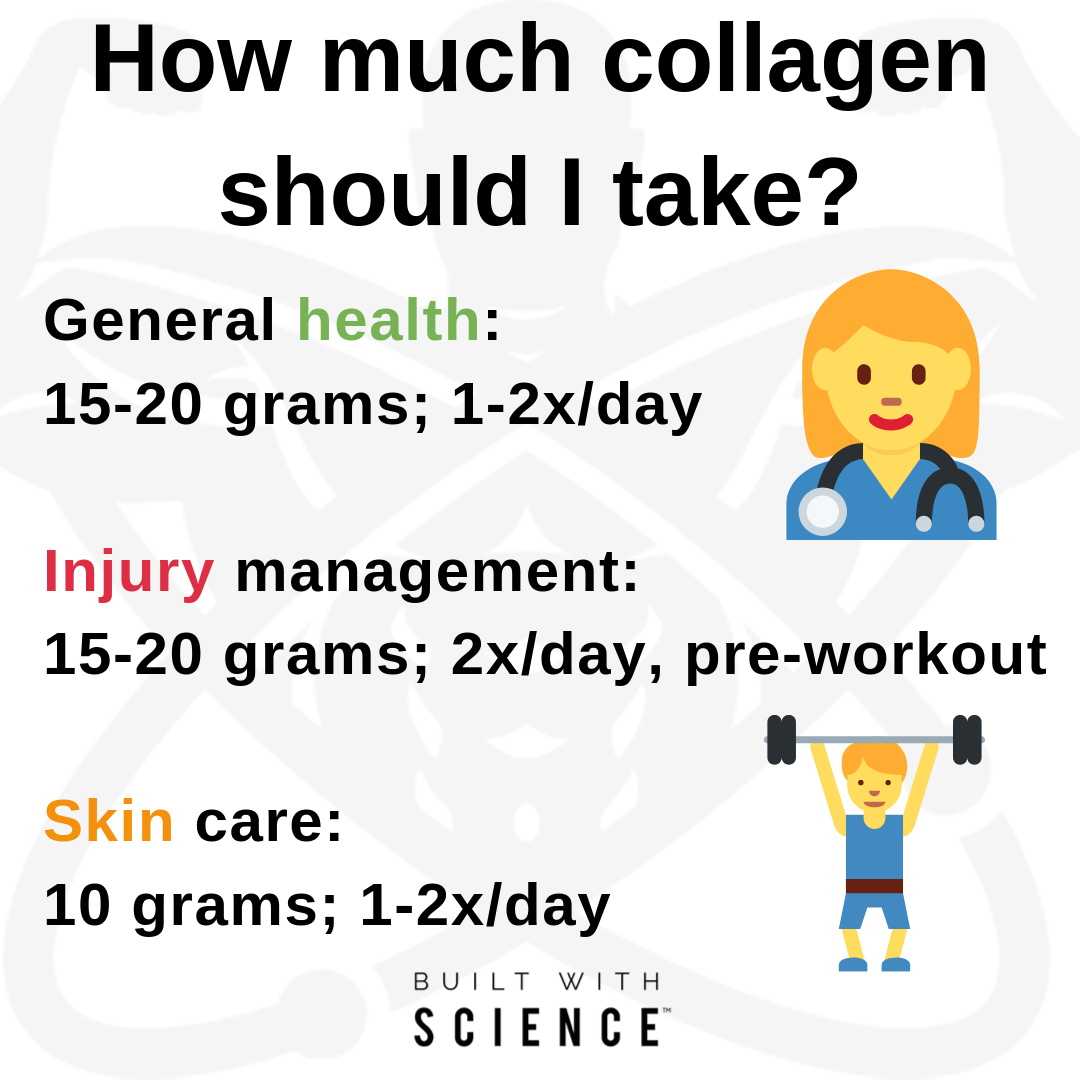
SKIN HEALTH AND COMPLEXION
Luckily for us, any dose from 1-10 grams of collagen per day has been shown to help with skin complexion. Plus, it seems like you won’t have to take collagen with vitamin C to reap all the benefits.
So you should take 1-10 grams of collagen per day for skin care. That is, whenever you want. And up to two times per day.
But to reap all the benefits of collagen, take at least 10 grams per day. Since this dose has been shown to work the fastest for skin. But more so because that could help with joint care and fat loss too.
PRACTICAL EXAMPLE:
Bob wakes up in the morning. Then, he takes 5-10 grams of hydrolyzed collagen. If he feels like it, he takes another 5-10 grams later in the day.
And to max out the fat loss benefits, he should take 20+ grams per day. For example, he could take 10 grams in the morning, then do so once more before dinner. Simple as that.
Don't know how you can fit collagen into your daily life? Our 3-on-1 coaching program can help. You are going to have a dietitian who'll customize your nutrition plan (so you get all the collagen you need!) to suit your goals. Plus, your coach and I will also be available to guide you every step of the way. If that sounds good to you, then:
Click the button below to find out more about the 3-on-1 coaching program:
↓
FAQ:
1. WHAT’S THE BEST COLLAGEN SUPPLEMENT FOR SKIN?
Believe it or not, pork collagen might be your best bet. That is, collagen from pigs.
To be clear, pork collagen seems to re-hydrate skin faster than fish collagen can. But further, it helps get rid of sun spots faster as well.
Plus, beef and pork collagen are both equally good at treating joint pain.
So, if you can’t get pork collagen, then go with beef collagen. Which seems to offer the same benefits. At least for joints, that is.
But that's just the collagen sources. What about the collagen types?
Well, it’s not clear that you can isolate a specific collagen type. Or in other words, when you buy collagen type-2, you may be getting some type-1 as well.
With that said though, our skin is mostly made up of collagen type-1. And ~90% of your body’s collagen is type-1. So, that should be best for your skin.
But when you buy a standard hydrolyzed collagen, it has a lot of collagen type-1 to begin with. Thus, if you just buy a high-quality collagen product, your skin should show it.
And besides, our body's cartilage has more type-2 collagen, for example. But type-1 collagen has still shown to help preserve our cartilage.
Hence, different collagen types may share the same benefits. Which means that collagen type-1 could help your joints, even though your joints have more collagen type-2.
So all told, ideally, get collagen from pork or beef. And besides that, just buy collagen from a good brand. Be it collagen type-1 or type-2, your skin should reap the benefits.
2. COLLAGEN PILLS VS. POWDER?
Sadly, most collagen pills are under-dosed. And so, they don't give you that much collagen. At least, not for the price.
Hence, collagen powder is cheaper.
To start off, studies find that you need at least 15-20 grams per day to get all the benefits of collagen. Thus, we’ll call 15-20 grams an “effective dose.”
Just looking around, most collagen pills have about 2.5 grams of collagen per pill. So, to get all 15-20 grams, that’s 6-8 pills per day. From a bottle with just 60 tablets, in most cases.
As such, a bottle of collagen pills only gives you ~10 effective doses. Or in other words, a bottle of collagen pills lasts you just ~10 days at most.
But a tub of collagen powder provides ~10-20 ounces per container. Which is more like ~15-35 effective doses.
That is, you get ~15-35 effective doses of collagen when you buy powder. Versus just 10 such doses if you buy pills. And so the pills will cost you a lot more.
All told, if you take 15-20 grams of collagen from pills, then a container might last you ~10 days. But for less money, hydrolyzed collagen powder lasts ~15-30 days. Thus, hydrolyzed collagen powder costs much less.
But with that said, if you prefer to use collagen pills, they can still work well. And perhaps just as well as collagen powder would.
3. IS COLLAGEN GOOD FOR NAILS?
Oddly enough, collagen can help with your nails too. That is, it can make your nails grow faster. But what's more, it can also help your nails stronger.
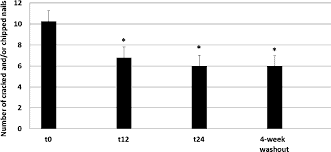
To be clear, the effect isn’t all that big, and we don't have many studies. But collagen has been shown to speed up nail growth by 12%.
Further though, it's been shown to cut down nail-break frequency by 42% as well. So when you take collagen, your nails might crack much less often.
Hence, hydrolyzed collagen may keep your nails from breaking. But moreover, it can help speed up nail growth too.
Now, you may be wondering:
WILL I NOTICE THE BENEFITS FOR MY NAILS?
Believe it or not, you should be able to see the benefits for nails.
For instance, in one study, 80% of subjects thought their nails looked better after 24 weeks. Plus, these collagen users said they were happy with to use the product.
What's more though, ~70% of collagen users in this study said they had stronger nails with collagen.
So your nails may in fact look better or feel stronger with collagen. And you should be able to tell that collagen helps make a difference.
But that’s all of the research on collagen and nails. So there’s really not very much to go by...
4. CAN YOU USE COLLAGEN FOR HAIR GROWTH?
Sadly, there aren't any studies to help us answer this question. We just don’t know if collagen can help boost hair growth.
Now, from talking to people who use collagen, some notice that it speeds up hair growth. But there’s not much more we can say here.
Any studies have only found stronger, glossier hair with collagen. Which is cool, for sure, but still tells us nothing about hair growth.
Although, if collagen can help make your hair stronger and glossier, then that’s good in its own right.
But all told, collagen may speed up hair growth. Or, it may not.
Since we have no studies here, you’ll have to test it out for yourself. But on the bright side, collagen may help make your hair stronger/glossier. So it wouldn’t hurt much to test collagen for hair. Especially since collagen provides many other benefits (e.g. joint care or fat loss).
And for those looking for a complete step-by-step program that uses science to show you how to properly train AND eat week after week to transform your body in the most efficient and injury-free way possible, then:
Click the button below to take my analysis quiz to discover the best program for you:
↓

